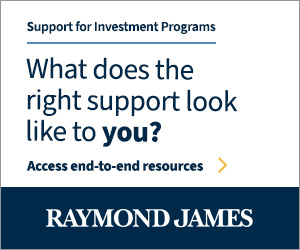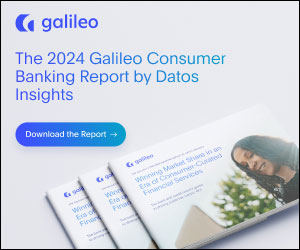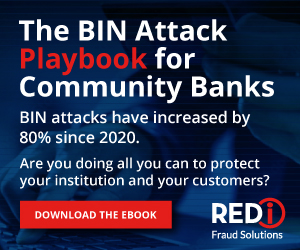|
This ABA Banking Journal newsletter is a free, twice-monthly supplement to the ABA Banking Journal magazine intended to help you stay on top of industry and policy news.
You can also stay abreast of banking news by visiting aba.com/BankingJournal, home to ABA Daily Newsbytes stories, digital exclusives, the ABA Banking Journal Podcast and more.
Some bank risks just never seem to go away, and that’s certainly been the case with fraud. In fact, the opportunities for fraud keep expanding. New and persistent bank risks’ interconnectedness elevate overall risk.
|
ABA Banking Journal annually explores leading challenges for bankers, with insights from experts at American Bankers Association and from across the banking industry.
|
ABA experts weigh in on how banks can harness the tools to drive value, build trust and stay ahead in a hyper-competitive landscape.
|
The ABA Foundation launched its 2025 financial education campaigns by encouraging U.S. banks and their more than two million employees to participate in these industry efforts. The launch comes as the foundation celebrates its 100th anniversary.
|
With numerous lawsuits on industry regulations and aggressive actions by regulators to issue rules before the end of the year, your ABA Banking Journal editorial team has had an incredibly busy year. Our team published 1,385 short Newsbytes stories, as well as numerous web and print features, to keep the industry informed. Presented here are the top 10 most-read items published on the Banking Journal website this year.
|
On the inaugural episode of the ABA Fraudcast, former ABA Chair Dan Robb, president and CEO of Jonesburg State Bank in Missouri, describes the recent targeting of his bank by fraudsters who texted thousands of residents of his community, seeking access to customer accounts. What followed for Robb and his team were fast lessons on all the areas his bank was prepared for, and a few challenges that were surprising.
|
In the latest ABA survey of bank marketers, it is clear they are focusing more on the channels that drive results, with a prioritization of digital marketing and media for 2025 budgets. This survey was fielded from September to October of 2024 and had 101 respondents from banks less than $200 million up to $10 billion.
|
This year could be a “banner year” for bank mergers and acquisitions, and while there remain numerous variables that could hinder activity, improving economic conditions, enhanced net interest margins and the possibility of tax cuts “should improve fundamentals,” according to a recent analysis by the law firm Hunton Andrews Kurth.
|
The ABA joined the S Corporation Association and more than 230 associations in support of legislation to make permanent the Section 199A tax deduction for pass-through business income.
|
Acting FDIC Chairman Travis Hill released a list of priorities for the agency in coming months, promising to revisit the FDIC’s process for reviewing proposed bank mergers, to take a more “open-minded” approach to bank adoption of technology and to rescind “problematic” Biden-era proposed rules, such as those on brokered deposits and corporate governance.
|
As part of a sweeping action revoking multiple Biden-era policies, President Trump rescinded a 2023 executive order directing federal agencies to review and possibly draft new rules governing the use of artificial intelligence across multiple sectors of the economy, including financial services. Trump also rescinded a 2021 executive order seeking more disclosure of financial risks linked to climate change.
|
The U.S. Department of Housing and Urban Development last week announced a set of permanent options for mortgage servicers to help borrowers with Federal Housing Administration-insured single-family mortgages keep their homes. FHA is part of HUD.
|
Acting SEC Chairman Mark Uyeda announced the formation of a new task force to develop “a comprehensive and clear regulatory framework” for crypto assets. SEC Commissioner Hester Peirce will lead the task force.
|
The New York State Department of Financial Services has proposed new restrictions on overdraft and non-sufficient funds fees for state-chartered banks, including banning fees for overdraft amounts of less than $20.
|
|








